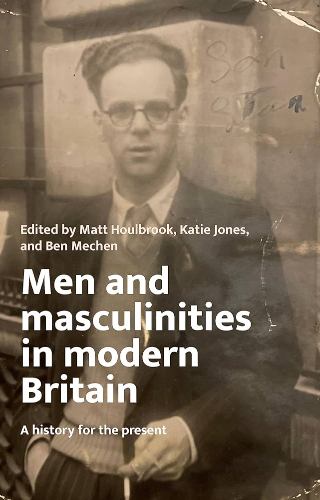 | Ben Mechen, Matt Houlbrook and Katie Jones, ‘Men and masculinities in modern Britain’, Manchester University Press, 2024This book offers a striking and pointed reflection on what histories of masculinity in modern Britain have been and where they might go next. Addressing the constant contemporary talk of crisis around men’s lives, Men and Masculinities argues powerfully that we need histories of masculinity which are present-centred and politically engaged. In so doing, it sets out a new agenda for the field. Ranging over the past 130 years, a series of engaging and original essays trace how men, like masculinity, were made. In exploring that process, contributors demonstrate the radically different ways in which men made sense of the world and their place in it. |
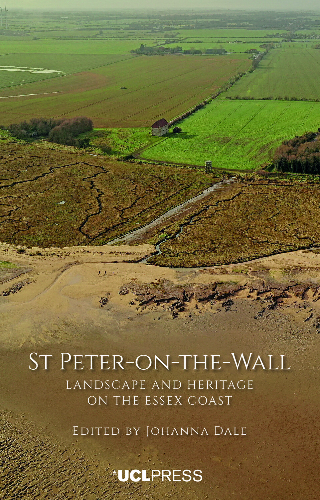 | Edited by Johanna Dale, ‘St Peter On The Wall’, UCL Press, 2023The Chapel of St Peter-on-the-Wall, built on the ruins of a Roman fort, dates from the mid-seventh century and is one of the oldest largely intact churches in England. The impetus for this collection was the recently published designs for a new nuclear power station at Bradwell on Sea, which, if built, would have a significant impact on the chapel and its landscape setting. This book brings together contributors from across the arts, humanities and social sciences to uncover the pre-modern contexts and modern resonances of this medieval building and its landscape setting. |
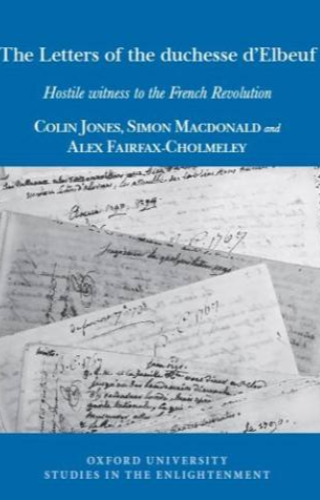 | Simon Macdonald, Colin Jones and Alex Fairfax-Cholmeley, 'The Letters of the Duchesse d’Elbeuf: Hostile Witness to the French Revolution', Oxford University Studies in the Enlightenment, 2023.The recently-discovered letters of the wealthy counter-revolutionary aristocrat, Innocente-Catherine de Rougé, dowager duchess d’Elbeuf (1707-94), offer a vivid and exciting new eye-witness perspective on the French Revolution and the Terror. Hostile witness to everything about the Revolution, from the noble revolt, the storming of the Bastille and the peasant revolution in 1788-91, through to the outbreak of war, the overthrow and trial of Louis XVI and the Terror in 1791-4, the duchess’s letters to an unknown friend offer an unparalleled real-time narrative by an aristocratic woman struggling to understand radical change. |
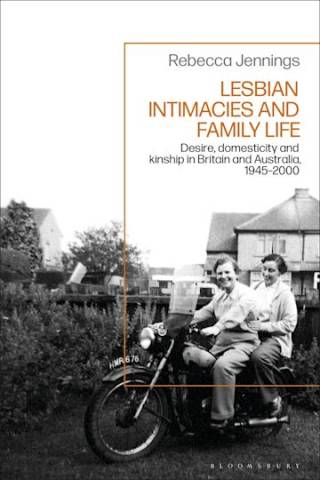 | Rebecca Jennings, 'Lesbian Intimacies and Family Life: Desire, domesticity and kinship in Britain and Australia, 1945-2000', Bloomsbury, 2023.Focusing on patterns of intimacy, this book traces the historical roots of parenting practices and familial patterns constructed by lesbians and same-sex attracted women living in Britain and Australia between 1945 and 2000. It foregrounds women's unique lived experiences, as they expressed desire, fell in love, and created families against the backdrop of changing cultural, legal, and medical attitudes to female same-sex desire in the late 20th century. |
 | Emily Corran, Philip Leverhulme Prize, 2023.Emily Corran has won a 2023 Philip Leverhulme Prize for her work on the intellectual and social history of Catholicism in the Later Middle Ages. Her project investigates casuistry, the discipline concerned with practical ethics and fine-grained moral choice. Casuistry is an aspect of religious thought that is most associated with the Jesuits and the polemics of the Counter-Reformation, but in fact was a long-running scholastic discipline which first emerged at the end of the twelfth century and came to prominence in the later Middle Ages. |
 | Joshua Madrid, ‘Where Loyalties Lie: English Catholic Responses to Bombing in the Second World War,’ in British Christianity and the Second World War, edited Michael Snape and Stuart Bell, London: Boydell and Brewer, 2023.This volume presents a major reappraisal of the role of Christianity in Great Britain between 1939 and 1945, examining the influence of Christianity on British society, statecraft, politics, the media, the armed forces, and on the education and socialization of the young. |
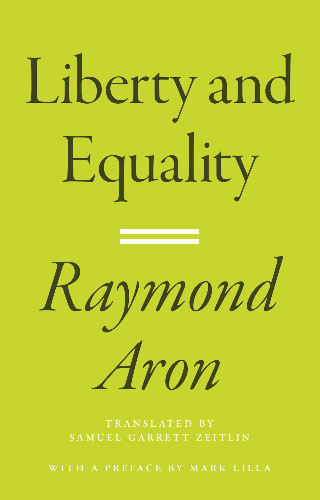 | Translated by Samuel Zeitlin: Raymond Aron, Liberty and Equality, Princeton University Press, 2023.Liberty and Equality is the first English translation of the last lecture delivered at the Collège de France by Raymond Aron, one of the most influential political and social thinkers of the twentieth century. In this important work, the most prominent French liberal intellectual of the Cold War era presents his views on the core values of liberal democracy: liberty and equality. At the same time, he provides an ideal introduction to key aspects of his thought. |
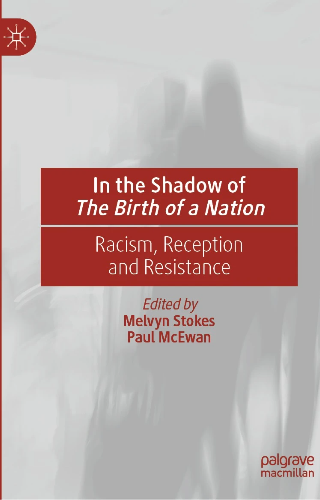 | Melvyn Stokes and Paul McEwan, eds., In the Shadow of "The Birth of a Nation": Racism, Reception and Resistance, Palgrave Macmillan, 2023.This collection brings together many of the world’s leading scholars on race and film to re-consider the legacy and impact of D.W. Griffith’s deeply racist 1915 epic The Birth of a Nation. While this film is often cited, there is a considerable dearth of substantial research on its initial impact and global reach. These essays fill important gaps in the history of the film, including essential work on its sources, international reception, and African American responses. This book is a key text in the history of the most infamous and controversial film ever made and offers crucial new insights to scholars and students working in film history, African American history and the history of race relations. |
 | Callie (Seoyoung) Yoo and Olivier Croston, 'Highly Commended Entrants' in the History Category of The Global Undergraduate Awards, 2023.Callie and Olivier wrote their research essays for the UCL History Second-Year Research Seminar, 'Black Lives in the South Atlantic: West Africa, Americas, and the Caribbean in the Early Modern Era'. Callie's essay analysed 'The significance of Western Europe cartographic representation in West African sovereignty' and Olivier's essay explored, 'The role of the sacrament of baptism in the creation of identities and communities in the Spanish Americas'. |
 | Chloe Ireton, British Academy and the Wolfson Foundation Fellowship, 2023.Dr Ireton's ‘Freedom in Black Thought in the Early Modern Atlantic (1450-1750)’ project traces how enslaved and free Black Africans in the early modern era reckoned with the violent Atlantic world that they were forced to inhabit, and how they shaped the intellectual life of colonial societies by exploring how free and enslaved Black Africans conceptualized freedom in the Spanish Atlantic. |
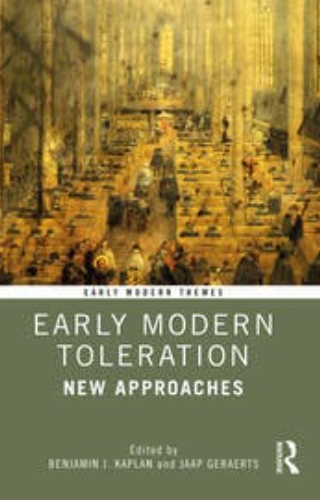 | Benjamin Kaplan, Early Modern Toleration: New Approaches, Taylor & Francis Group, 2023.This book examines the practice of toleration and the experience of religious diversity in the early modern world. Recent scholarship has shown the myriad ways in which religious differences were accommodated in the early modern era (1500-1800). This book propels this revisionist wave further by linking the accommodation of religious diversity in early modern communities to the experience of this diversity by individuals. It does so by studying the forms and patterns of interaction between members of different religious groups, including Christian denominations, Muslims, and Jews, in territories ranging from Europe to the Americas and South-East Asia. The book is structured around five key concepts: the senses, identities, boundaries, interaction, and space. For each concept, the book provides chapters based on new, original research plus an introduction that situates the chapters in their historiographic context. |
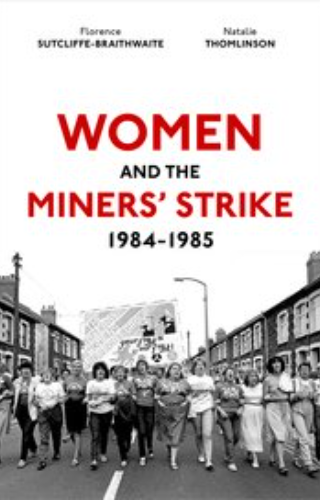 | Florence Sutcliffe-Braithwaite, Women and the Miners' Strike, 1984-1985, OUP, 2023.Just days into the miners' strike of 1984-1985, a few women in coalfield communities around Britain began to meet to consider how they could support the strike, a clash with the Thatcher government over the future of the coal industry. Women ultimately formed a national network of groups that some observers saw as an 'alternative welfare state', helping to keep the strike going for just under a year. This book is the first study of this national movement, illuminating its achievements, but also telling the less well-known story of arguments and divisions with men in the National Union of Mineworkers and feminists in the women's liberation movement. Many women in the movement, despite their activism, resolutely denied that they were 'political' at all, defining themselves as 'ordinary' women, housewives, mothers, and workers; and, despite some claims that women activists had been transformed for ever by their experiences, most of those involved felt they had been changed only in more subtle ways. |
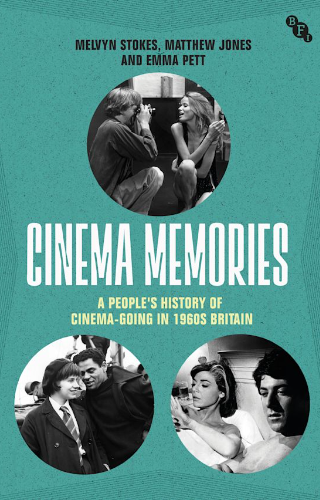 | Melvyn Stokes, Matthew Jones and Emma Pett, Cinema Memories: A People's History of Cinema-going in 1960s Britain, British Film Institute/Bloomsbury, 2022Cinema Memories brings together and analyses the memories of almost a thousand people of going to the cinema in Britain during the 1960s. It offers a fresh perspective on the social, cultural and film history of what has come to be seen as an iconic decade, with the release of films such as A Taste of Honey, The Sound of Music, Darling, Blow-Up, Alfie, The Graduate, and Bonnie and Clyde. Drawing on first-hand accounts, authors Melvyn Stokes, Matthew Jones and Emma Pett explore how cinema-goers constructed meanings from the films they watched - through a complex process of negotiation between the films concerned, their own social and cultural identities, and their awareness of changes in British society. |
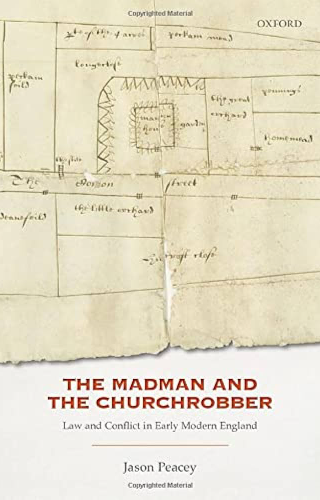 | Jason Peacey, The Madman and the Churchrobber: Law and Conflict in Early Modern England, OUP, 2022.This microhistory reconstructs and analyses a protracted legal dispute over a small parcel of land called Warrens Court in Nibley, Gloucestershire, which was contested between successive generations of two families from the mid-sixteenth century to the early eighteenth century. Employing a rich cache of archival material, Jason Peacey traces legal contestation over time and through a range of different courts, as well as in Parliament and the public domain, and contends that a microhistorical approach makes it possible to shed valuable light upon the legal and political culture of early modern England, not least by comprehending how certain disputes became protracted and increasingly bitter, and why they fascinated contemporaries. |
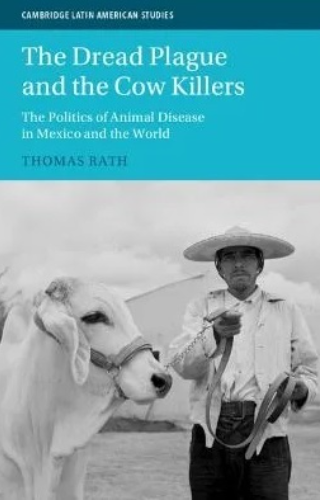 | Thom Rath, The Dread Plague and the Cow Killers: The Politics of Animal Disease in Mexico and the World, CUP, 2022.Between 1947 and 1954, the Mexican and US governments waged a massive campaign against a devastating livestock plague, aftosa or foot-and-mouth disease. Absorbing over half of US economic aid to Latin America and involving thousands of veterinarians and ranchers from both countries, battalions of Mexican troops, and scientists from Europe and the Americas, the campaign against aftosa was unprecedented in size. Despite daunting obstacles and entrenched opposition, it successfully eradicated the virus in Mexico, and reshaped policies, institutions, and knowledge around the world. Using untapped sources from local, national, and international archives, Thomas Rath provides a comprehensive history of this campaign, the forces that shaped it – from presidents to peasants, scientists to journalists, pistoleros to priests, mountains to mules – and the complicated legacy it left. More broadly, it uses the campaign to explore the formation of the Mexican state, changing ideas of development and security, and the history of human–animal relations. |
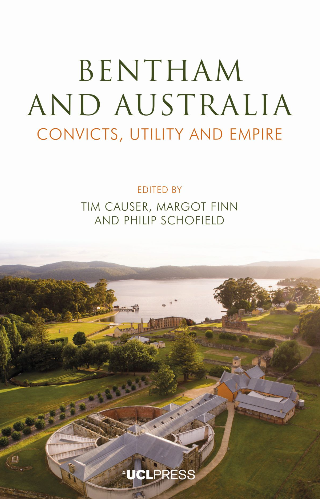 | Margot Finn: co-edited with Tim Causer and Philip Schofield, Jeremy Bentham and Australia: Convicts, Utility and Empire, UCL Press, 2022.In the present collection, a distinguished group of authors reflect on Bentham’s Australian writings, making original contributions to existing debates and setting agendas for future ones. In the first part of the collection, the works are placed in their historical contexts, while the second part provides a critical assessment of the historical accuracy and plausibility of Bentham’s arguments against transportation from the British Isles. In the third part, attention turns to Bentham’s claim that New South Wales had been illegally founded and to the imperial and colonial constitutional ramifications of that claim. Here, authors also discuss Bentham’s work of 1831 in which he supports the establishment of a free colony on the southern coast of Australia. In the final part, authors shed light on the history of Bentham’s panopticon penitentiary scheme, his views on the punishment and reform of criminals and what role, if any, religion had to play in that regard, and discuss apparently panopticon-inspired institutions built in the Australian colonies. |
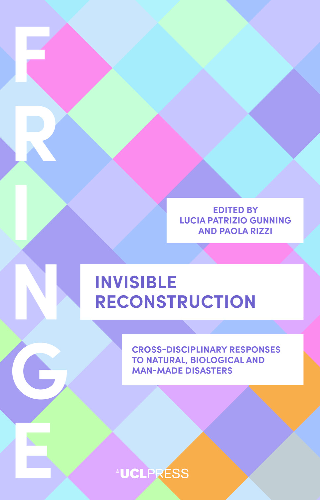 | Lucia Patrizio Gunning, co-edited with Paola Rizzi, Invisible Reconstruction |
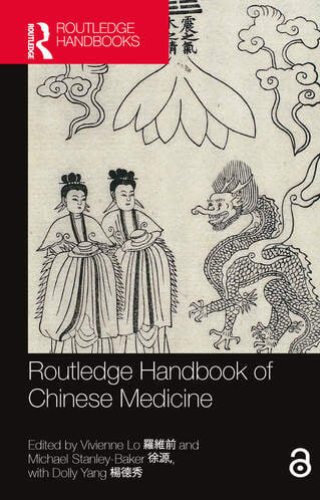 | Vivienne Lo: Routledge Handbook of Chinese Medicine, 2022.The Routledge Handbook of Chinese Medicine is an extensive, interdisciplinary guide to the nature of traditional medicine and healing in the Chinese cultural region, and its plural epistemologies. Established experts and the next generation of scholars interpret the ways in which Chinese medicine has been understood and portrayed from the beginning of the empire (third century BCE) to the globalisation of Chinese products and practices in the present day, taking in subjects from ancient medical writings to therapeutic movement, to talismans for healing and traditional medicines that have inspired global solutions to contemporary epidemics. It has been chosen as a model online handbook for its number of downloads. |
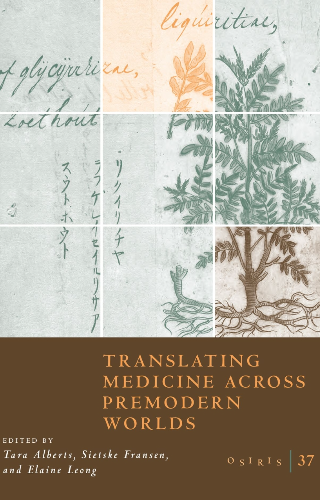 | Elaine Leong – edited collection. Translating Medicine Across Premodern Worlds, co-edited with Tara Alberts and Sietske Fransen, Osiris, 37 (2022).Translating Medicine across Premodern Worlds features case studies located in geographically and temporally diverse contexts, including ninth-century Baghdad, sixteenth-century Seville, seventeenth-century Cartagena, and nineteenth-century Bengal. Throughout, the contributors explore common themes and divergent experiences associated with a variety of historical endeavors to “translate” knowledge about health and the body across languages, practices, and media. By deconstructing traditional narratives and de-emphasizing well-worn dichotomies, this volume ultimately offers a fresh and innovative approach to histories of knowledge. |
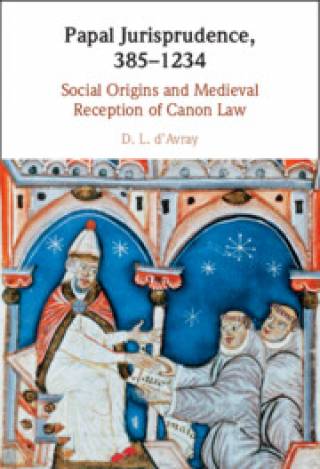 | David L. d'Avray, Papal Jurisprudence, 385–1234: Social Origins and Medieval Reception of Canon Law (Cambridge University Press, 2022)Why did bishops turn to the papacy for advice in late Antiquity? And what does the reception of these decretals reveal about the legal and religious culture of the mid-thirteenth century? This interpretative volume seeks to explain the first decretal age of late antiquity, placing the increased demand for papal jurisprudence – long before it exerted its influence through religious fear – within its social broad context. D. L. d'Avray then traces the reception of this jurisprudence through to the mid-thirteenth century, and the post-Gratian decretal age. Along the way he explores the role of Charlemagne and 'Pseudo-Isidore', which included many genuine early decretals alongside forged ones. Similarities between the Latin world c. 400 and c. 1200 thus help explain parallels between the two decretal ages. This book also analyses decretals from both ages in chapters on pagan marriages, clerics in minor orders, and episcopal elections. For both ages the relation between canon law and other religious genres is elucidated, demonstrating many fascinating parallels and connections. |
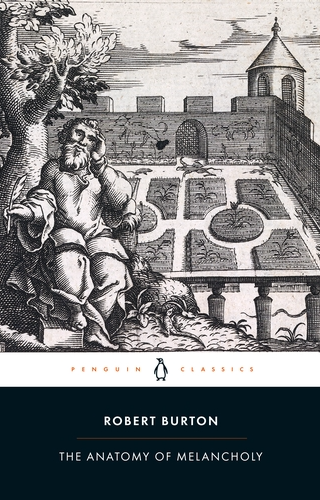 | Angus Gowland: Robert Burton, The Anatomy of Melancholy, ed. and trans. Angus Gowland, Penguin Classics, 2021.Robert Burton's labyrinthine, beguiling, playful masterpiece is his attempt to 'anatomize and cut up' every aspect of the condition of melancholy, from which he had suffered throughout his life. Ranging over beauty, digestion, the planets, alcohol, goblins, kissing, poetry and the restorative power of books, among many other things, The Anatomy of Melancholy has fascinated figures from Samuel Johnson to Jorge Luis Borges since the seventeenth century, and remains an incomparable examination of the human condition in all its flawed, endless variety. Edited with an introduction by Angus Gowland |
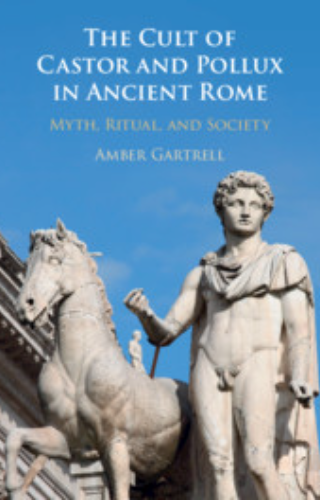 | Amber Gartrell, The Cult of Castor and Pollux in Ancient Rome: Myth, Ritual and Society, Cambridge University Press, 2021.The Dioscuri first appeared at the Battle of Lake Regillus in 496 BC to save the new Republic. Receiving a temple in the Forum in gratitude, the gods continued to play an important role in Roman life for centuries and took on new responsibilities as the needs of the society evolved. Protectors of elite horsemen, boxers and sailors, they also served as guarantors of the Republic's continuation and, eventually, as models for potential future emperors. Over the course of centuries, the cult and its temples underwent many changes. In this book, Amber Gartrell explores the evolution of the cult. Drawing on a range of methodological approaches and a wide range of ancient evidence, she focuses on four key aspects: the gods' two temples in Rome, their epiphanies, their protection of varied groups, and their role as divine parallels for imperial heirs, revealing how religion, politics and society interacted and influenced each other. |
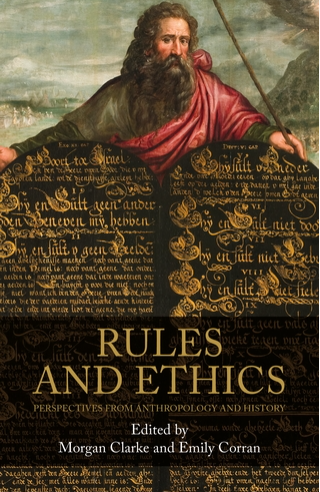 | Emily Corran: Ed. with Morgan Clarke, Rules and Ethics: Perspectives from Anthropology and History, Manchester University Press, 2021.This book investigates the pronounced enthusiasm that many traditions display for codes of ethics characterised by a multitude of rules. Recent anthropological interest in ethics and historical explorations of 'self-fashioning' have led to extensive study of the virtuous self, but existing scholarship tends to pass over the kind of morality that involves legalistic reasoning. Rules and ethics corrects that omission by demonstrating the importance of rules in everyday moral life in a variety of contexts. In a nutshell, it argues that legalistic moral rules are not necessarily an obstruction to a rounded ethical self, but can be an integral part of it. An extended introduction first sets out the theoretical basis for studies of ethical systems that are characterised by detailed rules. This is followed by a series of empirical studies of rule-oriented moral traditions in a comparative perspective. |
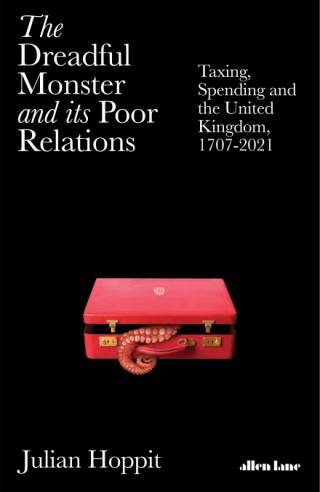 | Julian Hoppit, The Dreadful Monster and its Poor Relations Taxing, Spending and the United Kingdom, 1707-2021 (Allen Lane, 2021)It has always been an important part of British self-image to see the United Kingdom as an ancient, organic and sensibly managed place, in striking contrast to the convulsions of other European countries. To a limited degree this is true, but, as Julian Hoppit makes clear in this fascinating and surprising book, beneath the complacent surface the United Kingdom has in fact been in a constant, often very tense argument with itself about how it should be run and, most significantly, who should pay for what. The book takes its argument from an eighteenth century cartoon which shows the central state as the 'Dreadful Monster', gorging itself at the dinner table on all the taxes it can grab. Meanwhile the 'Poor Relations' - Scotland, Wales and Ireland, both poor because of tax but also poor in the sense of needing special treatment - are viewed in London as an endless 'drain on the state'. With drastically different levels of prosperity, population, industry, agriculture and accessibility between the United Kingdom's different nations, what is a fair basis for paying for the state? |
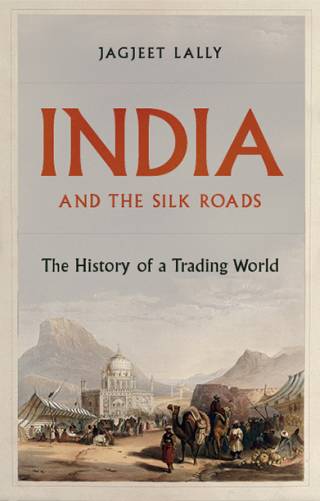 | Jagjeet Lally, India and the Silk Roads: The History of a Trading World (Hurst, 2021)India’s caravan trade with central Asia was at the heart of the complex web of routes making up the Silk Roads. But what was the fate of these overland connections in the ages of sail and steam? Jagjeet Lally sets out to answer this question by bringing the world of caravan trade to life—a world of merchants, mercenaries, pastoralists and pilgrims, but also of kings, bureaucrats and their subjects in the countryside and towns. The livelihoods of these figures did not become obsolete with the advent of ‘modern’ technologies and the consequent emergence of new global networks. Terrestrial routes remained critically important, not only handling flows of goods and money, but also fostering networks of trade in credit, secret intelligence and fighting power. With the waning of the Mughal Empire during the eighteenth century, new Indian kingdoms and their rulers came to the fore, drawing their power and prosperity from resources brought by caravan trade. The encroachment of British and Russian imperialism into this commercial arena in the nineteenth century gave new significance to some people and flows, while steadily undermining others. India and the Silk Roads is a global history of a continental interior, the first to comprehensively examine the textual and material traces of caravan trade in the ‘age of empires’. By showing how no single ruler could control the nebulous yet durable networks of this trading world, which had its own internal dynamics even as it evolved in step with global transformations, Lally forces us to rethink the history of globalisation and re-evaluate our fixation with empires and states as the building blocks of historical analysis. It is a narrative resonating with our own times, as China’s Belt and Road Initiative brings terrestrial forms of connectivity back to the fore—transforming life across Eurasia once again. |
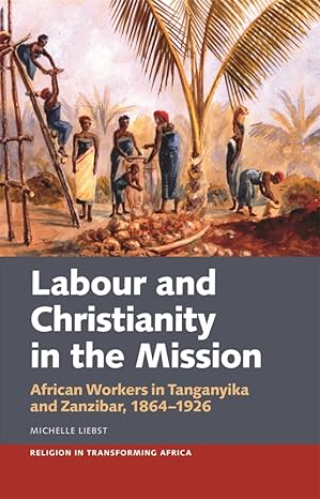 | Michelle Liebst, Postdoctoral Research Fellow on the AFRAB project: Labour and Christianity in the Mission: African Workers in Tanganyika and Zanzibar, 1864-1926, Religion in Transforming Africa Series, Boydell & Brewer, 2021.The important role missions played as places of work has been underexplored, yet missionaries were some of the earliest Europeans who tried to control African labour. African mission workers' roles were not just religious and educational, as they were actively involved, not always voluntarily, in building and domestic work. Focusing on the Anglican Universities' Mission to Central Africa (UMCA) in Tanganyika and Zanzibar in the late 19th and early 20th centuries, Michelle Liebst shows how missionaries both supported and undermined the livelihood trajectories of Africans. Revealing the changing nature of relations over time between missionaries - who referred to themselves as "workers" - and the African mission workers, including teachers and priests - whom missionaries referred to as "helpers" - reflected broader political transformations, and this innovative study of missions' role in society adds a critical dimension to our understanding of their function and socio-economic impact and the history of Christianity in Africa. |
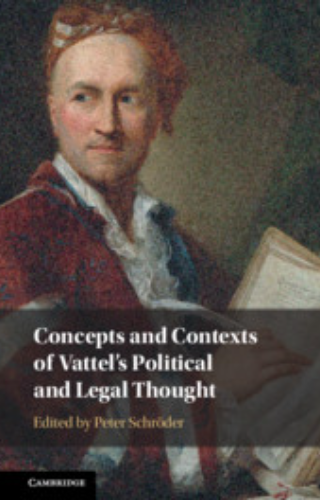 | Peter Schroeder (editor): Concepts and Contexts of Vattel's Political and Legal Thought, Cambridge University Press, 2021.Swiss-born Emer de Vattel (1714–1767) was one of the last eminent thinkers of natural law. He shaped the later part of early-modern natural jurisprudence. At the time, the subject had become a fashionable academic sub-discipline in both jurisprudence and philosophy. Vattel’s considerable impact on statesmen, political thinkers, diplomats, and lawyers during his lifetime and after rested primarily on the fact that his The Law of Nations (1758) transformed natural law into the basis of a more comprehensive and practicable theory of interstate relations. His ideas served to promote reform programmes whose comprehensive natures spanned the domains of economic reform, constitutionalism, international diplomacy, and foreign trade policy. Vattel’s conception centred round the principle that defined all sovereign states as nations composed of societies of free men and profoundly influenced legal and political debates in the eighteenth and nineteenth centuries. |
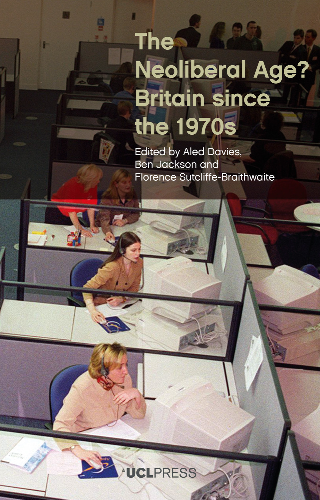 | Florence Sutcliffe-Braithwaite, with Ben Jackson and Aled Davies, The Neoliberal Age? Britain since the 1970s, UCL Press, 2021.The late twentieth and early twenty-first centuries are commonly characterised as an age of ‘neoliberalism’ in which individualism, competition, free markets and privatisation came to dominate Britain’s politics, economy and society. This historical framing has proven highly controversial, within both academia and contemporary political and public debate. Standard accounts of neoliberalism generally focus on the influence of political ideas in reshaping British politics; according to this narrative, neoliberalism was a right-wing ideology, peddled by political economists, think-tanks and politicians from the 1930s onwards, which finally triumphed in the 1970s and 1980s. The Neoliberal Age? suggests this narrative is too simplistic. |
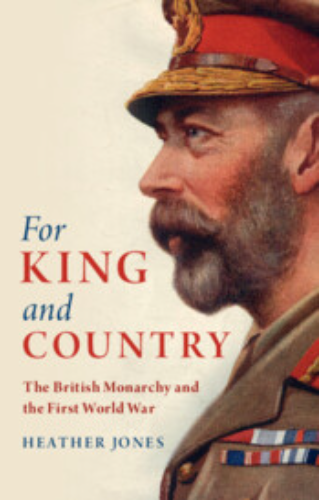 | Heather Jones, For King and Country: The British Monarchy and the First World War (Cambridge University Press, 2021).Won the 2021 Tomlinson Prize of the World War One Historical Association. This is a ground-breaking history of the British monarchy in the First World War and of the social and cultural functions of monarchism in the British war effort. Heather Jones examines how the conflict changed British cultural attitudes to the monarchy, arguing that the conflict ultimately helped to consolidate the crown's sacralised status. She looks at how the monarchy engaged with war recruitment, bereavement, gender norms, as well as at its political and military powers and its relationship with Ireland and the empire. She considers the role that monarchism played in military culture and examines royal visits to the front, as well as the monarchy's role in home front morale and in interwar war commemoration. Her findings suggest that the rise of republicanism in wartime Britain has been overestimated and that war commemoration was central to the monarchy's revered interwar status up to the abdication crisis. |
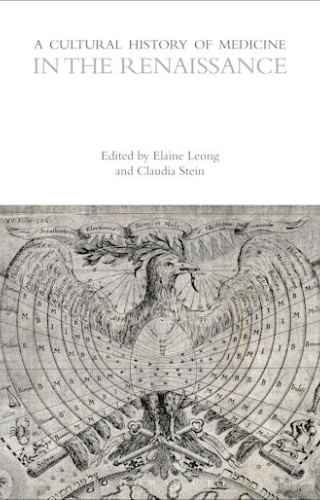 | Elaine Leong – edited collection. A Cultural History of Medicine in the Renaissance, co-edited with Claudia Stein (Bloomsbury Publishing, 2021).Since the 'cultural turn' of the 1980s the history of Renaissance medicine has been radically transformed, with older narratives stood on their head as concepts and categories for research have been re-thought. At the core of this change – for the period now familiarly referred to (not insignificantly) as 'early modern' – stands an epistemological reconsideration of the production of natural knowledge, and of power in relation to the core of medicine's subject, the human body. Additionally, at issue are the origins of modernity itself. Building on the foundations of this historiographical transformation, the essays in this volume elaborate, refine and challenge what are now standard interpretations in the study of medicine and the body in the early modern period. |
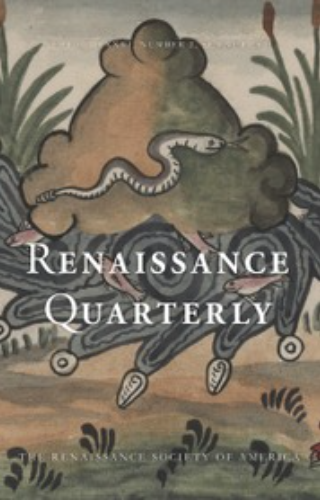 | Chloe Ireton: prize-winning article in Renaissance Quarterly: “Black Africans’ Freedom Litigation Suits to Define Just War and Just Slavery in the Early Spanish Empire," Renaissance Quarterly, 73(4), 1277-1319.Awarded the Renaissance Society of America William Nelson Prize for best article published in the Renaissance Quarterly in 2020. This article explores how some enslaved Black Africans litigated for their freedom in Spanish royal courts in the sixteenth century on the basis that—as Christians—they had been unjustly enslaved in Africa. With a focus on the port cities of Seville and Cartagena, I explore how freedom litigation suits illuminate how individuals from starkly different social worlds and intellectual milieus—who inhabited the same urban sites—affected and shaped one another's intellectual landscapes. I trace how enslaved Africans’ epistemologies of just slavery shaped broader discourses on the just enslavement of Africans in the Spanish Empire. |
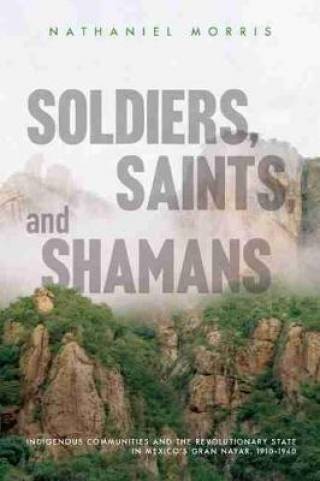 | Nathaniel Morris, Soldiers, Saints, and Shamans: Indigenous Communities and the Revolutionary State in Mexico’s Gran Nayar, 1910–1940 (Arizona University Press, 2020).The Mexican Revolution gave rise to the Mexican nation-state as we know it today. Rural revolutionaries took up arms against the Díaz dictatorship in support of agrarian reform, in defense of their political autonomy, or inspired by a nationalist desire to forge a new Mexico. However, in the Gran Nayar, a rugged expanse of mountains and canyons, the story was more complex, as the region’s four Indigenous peoples fought both for and against the revolution and the radical changes it bought to their homeland. |
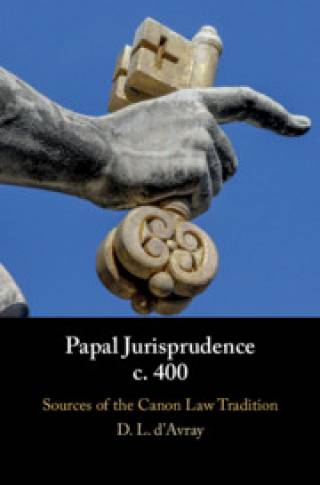 | David L. d'Avray (ed.), Papal Jurisprudence c. 400: Sources of the Canon Law Tradition (Cambridge University Press, 2019)In the late fourth century, in the absence of formal church councils, bishops from all over the Western Empire wrote to the Pope asking for advice on issues including celibacy, marriage law, penance and heresy, with papal responses to these questions often being incorportated into private collections of canon law. Most papal documents were therefore responses to questions from bishops, and not initiated from Rome. Bringing together these key texts, this volume of accessible translations and critical transcriptions of papal letters is arranged thematically to offer a new understanding of attitudes towards these fundamental issues within canon law. Papal Jurisprudence, c.400 reveals what bishops were asking, and why the replies mattered. It is offered as a companion to the forthcoming volume Papal Jurisprudence: Social Origins and Medieval Reception of Canon Law, 385–1234. |
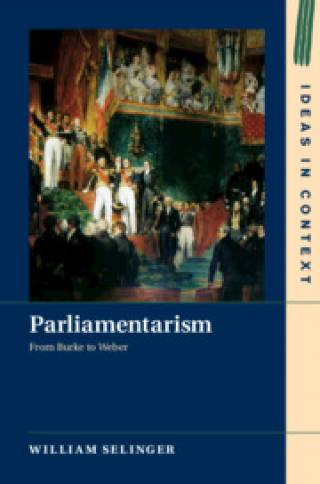 | William Selinger, Parliamentarism (Cambridge University Press, 2019).For eighteenth- and nineteenth-century authors such as Burke, Constant, and Mill, a powerful representative assembly that freely deliberated and controlled the executive was the defining institution of a liberal state. Yet these figures also feared that representative assemblies were susceptible to usurpation, gridlock, and corruption. Parliamentarism was their answer to this dilemma: a constitutional model that enabled a nation to be truly governed by a representative assembly. Offering novel interpretations of canonical liberal authors, this history of liberal political ideas suggests a new paradigm for interpreting the development of modern political thought, inspiring fresh perspectives on historical issues from the eighteenth to early twentieth centuries. In doing so, Selinger suggests the wider significance of parliament and the theory of parliamentarism in the development of European political thought, revealing how contemporary democratic theory, and indeed the challenges facing representative government today, are historically indebted to classical parliamentarism. |
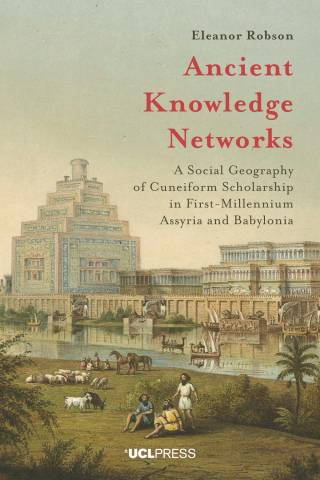 | Eleanor Robson, Ancient Knowledge Networks: A Social Geography of Cuneiform Scholarship in First-Millennium Assyria and Babylonia (UCL Press, 2019).Ancient Knowledge Networks is a book about how knowledge travels, in minds and bodies as well as in writings. It explores the forms knowledge takes and the meanings it accrues, and how these meanings are shaped by the peoples who use it. Addressing the relationships between political power, family ties, religious commitments and literate scholarship in the ancient Middle East of the first millennium BC, Eleanor Robson focuses on two regions where cuneiform script was the predominant writing medium: Assyria in the north of modern-day Syria and Iraq, and Babylonia to the south of modern-day Baghdad. She investigates how networks of knowledge enabled cuneiform intellectual culture to endure and adapt over the course of five world empires until its eventual demise in the mid-first century BC. In doing so, she also studies Assyriological and historical method, both now and over the past two centuries, asking how the field has shaped and been shaped by the academic concerns and fashions of the day. Above all, Ancient Knowledge Networks is an experiment in writing about ‘Mesopotamian science’, as it has often been known, using geographical and social approaches to bring new insights into the intellectual history of the world’s first empires. |
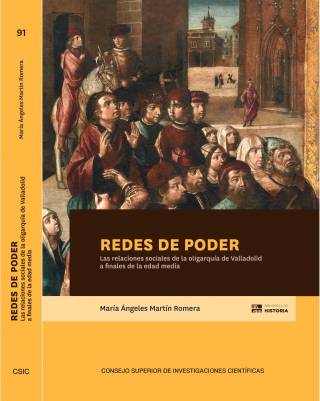 | María Ángeles Martín Romera, Redes de poder. Las relaciones sociales de la oligarquía de Valladolid a finales de la Edad Media [Grids of Power. The Social Network of a Castilian city in the Late Middle Ages] (Consejo Superior de Investigaciones Científicas, 2019).Urban oligarchies and the sources of their power are an important subject of debate among historians of the late Middle Ages. In the last decades historians have extensively debated the origin of these oligarchies, the way they gained and maintained control over urban institutions and the challenges they encountered, especially in the form of resistance from other social groups. Redes de poder combines these historiographical questions with an innovative digital humanities approach. Considering social capital as the main source of power for urban oligarchies, the study turns to Social Network Analysis (SNA) to offer a new interpretation of the complex networks in which oligarchies were embedded during the transition from the late medieval to the early modern period. The book is both a fundamental contribution to the history of cities in medieval Castile and to the new interdisciplinary field of Historical Social Network Analysis. |
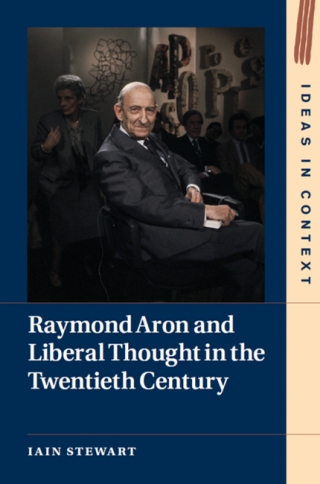 | Iain Stewart, Raymond Aron and Liberal Thought in the Twentieth Century (Cambridge University Press, 2019).Raymond Aron is widely regarded as the most important figure in the history of twentieth-century French liberalism. Yet his status within the history of liberal thought has been more often proclaimed than explained. Though he is frequently lauded as the inheritor of France's liberal tradition, Aron's formative influences were mostly non-French and often radically anti-liberal thinkers. This book explains how, why, and with what consequences he belatedly defined and aligned himself with a French liberal tradition. It also situates Aron within the larger histories of Cold War liberalism and decolonization, re-evaluating his contribution to debates over totalitarianism, the end of ideology, and the Algerian War. By exposing the enduring importance of Aron's student political engagements for the development of his thought, Iain Stewart challenges the prevailing view of Aron's early intellectual trajectory as a journey from naïve socialist idealism to mature liberal realism, offering a new critical perspective on one of the twentieth century's most influential intellectuals. |
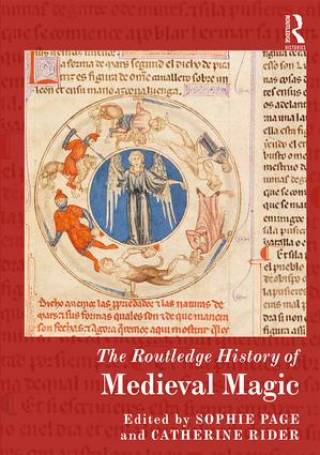 | Sophie Page and Catherine Rider (eds), The Routledge History of Medieval Magic (Routledge Histories, 2019).The Routledge History of Medieval Magic brings together the work of scholars from across Europe and North America to provide extensive insights into recent developments in the study of medieval magic between c.1100 and c.1500. The book includes contributions from a wide variety of leading scholars, and takes an interdisciplinary approach with chapters covering visual culture, music, literature and archeology, as well as texts and manuscripts. The book has also taken care to consider how research in this area could develop in the future. The book identifies topics which are yet to be thoroughly explored, highlights unpublished source materials and suggests new approaches to the topic as a whole. |
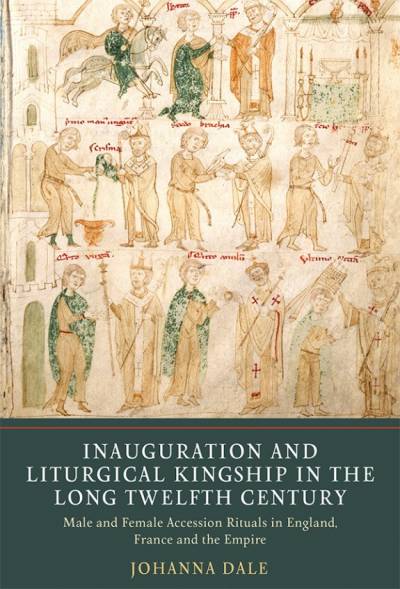 | Johanna Dale, Inauguration and Liturgical Kingship in the Long Twelfth Century: Male and Female Accession Rituals in England, France and the Empire (Boydell and Brewer: York Medieval Press, 2019).Inauguration and Liturgical Kingship in the Long Twelfth Century: Male and Female Accession Rituals in England, France and the Empire offers a revisionist angle to the question of sacral kingship, showing the continued importance of liturgical ceremonial in the twelfth century and onward. |
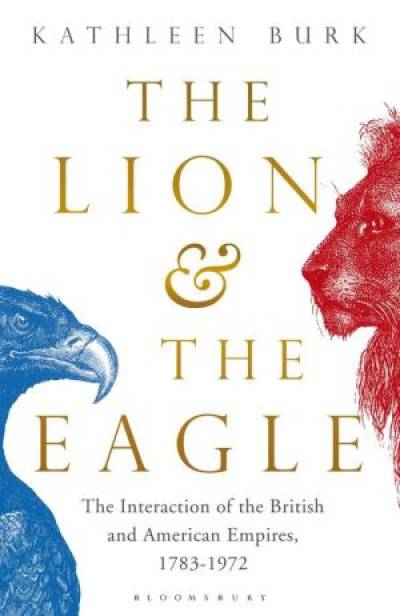 | Kathleen Burk, The Lion and the Eagle: The interaction of the British and American Empires 1783-1972 (Bloomsbury: London, 2018).Throughout modern history, British and American rivalry has gone hand in hand with common interests. In this book, Kathleen Burk examines the different kinds of power the two empires have projected, and the means they have used to do it. What the two empires have shared is a mixture of pragmatism, ruthless commercial drive, a self-righteous foreign policy and plenty of naked aggression. These have been aimed against each other more than once; yet their underlying alliance against common enemies has been historically unique and a defining force throughout the twentieth century. |
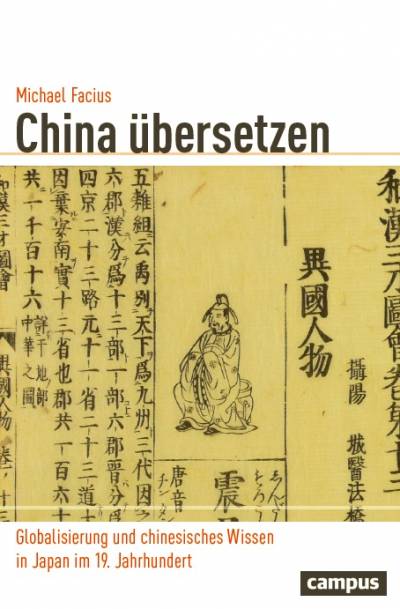 | Michael Facius, China übersetzen: Globalisierung und chinesisches Wissen in Japan im 19. Jahrhundert [Translating China: globalization and Chinese knowledge in 19th-century Japan] (Campus: Frankfurt, 2017)Japan's interactions with the traditions of Chinese knowledge, its texts and ideas, shaped the country's view of the world and its response to nineteenth-century globalisation. At the same time, they were themselves affected by the consequences of global integration. From early modern Confucianism to the Sinology of the empire, from poetry to linguistics, this study for the first time comprehensively describes the transformation of a field of knowledge which has often been neglected in favour of a focus on the influence of the Western sciences, but which is indispensable to the full understanding of Japanese history. |
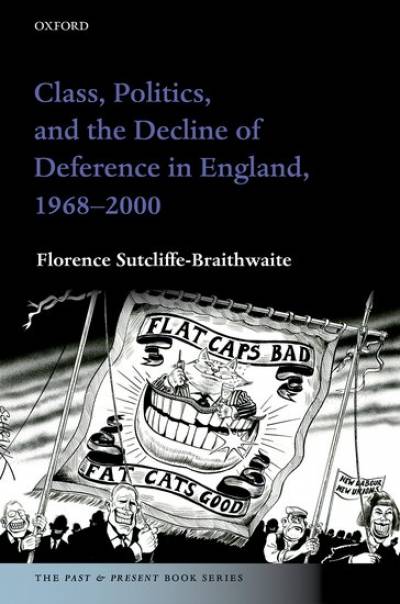 | Florence Sutcliffe-Braithwaite, Class, Politics, and the Decline of Deference in England (Oxford: Oxford UP, 2018)Using self-narratives drawn from a wide range of sources - the raw materials of sociological studies, transcripts from oral history projects, Mass Observation, and autobiography - this book examines class identities and narratives of social change between 1968 and 2000, showing that by the end of the period, class was often seen as a historical identity, related to background and heritage, and that many felt strict class boundaries had blurred profoundly since 1945. Class snobberies 'went underground' as people from many backgrounds began to assert that what was important was authenticity, individuality, and ordinariness. Sutcliffe-Braithwaite argues that it is most useful to understand the cultural changes of these years through the lens of the decline of deference, which transformed people's attitudes towards both class and politics. |
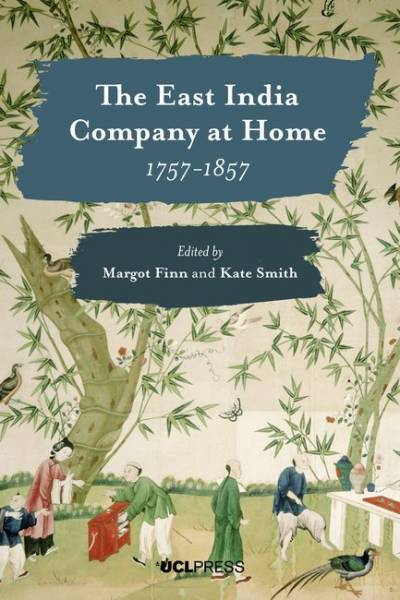 | Margot Finn and Kate Smith (eds), The East India Company at Home, 1757-1857 (London: UCL Press, 2018)The East India Company at Home, 1757-1857 explores how empire in Asia shaped British country houses, their interiors and the lives of their residents. It focuses on the propertied families of the East India Company at the height of Company rule. From the Battle of Plassey in 1757 to the outbreak of the Indian Uprising in 1857, objects, people and wealth flowed to Britain from Asia. As men in Company service increasingly shifted their activities from trade to military expansion and political administration, a new population of civil servants, army officers, surveyors and surgeons journeyed to India to make their fortunes. These Company men and their families acquired wealth, tastes and identities in India, which travelled home with them to Britain. Their stories, the biographies of their Indian possessions and the narratives of the stately homes in Britain that came to house them, frame our explorations of imperial culture and its British legacies. |
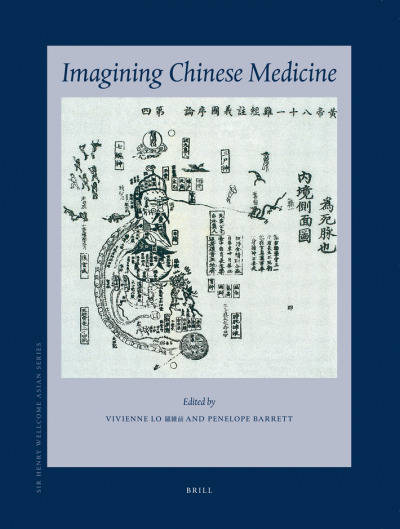 | Vivienne Lo and Penelope Barrett (eds), Imagining Chinese Medicine (Leiden: Brill, 2018)A unique collection of 36 chapters on the history of Chinese medical illustrations, this volume will take the reader on a remarkable journey from the imaging of a classical medicine to instructional manuals for bone-setting, to advertising and comic books of the Yellow Emperor. In putting images, their power and their travels at the centre of the analysis, this volume reveals many new and exciting dimensions to the history of medicine and embodiment, and challenges eurocentric histories. At a broader philosophical level, it challenges historians of science to rethink the epistemologies and materialities of knowledge transmission. There are studies by senior scholars from Asia, Europe and the Americas as well as emerging scholars working at the cutting edge of their fields. Thanks to the generous support of the Wellcome Trust, this volume is available in Open Access. |
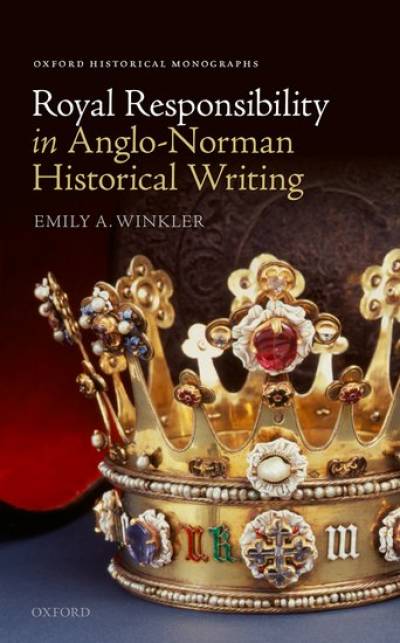 | Emily A Winkler, Royal Responsibility in Anglo-Norman Historical Writing (Oxford: OUP, 2017)In this monograph, Emily Winkler examines how eleventh-century kings were portrayed in the writings of four post-conquest historians: William of Malmesbury, Henry of Huntingdon, John of Worcester, and Geffrei Gaimar. In doing so uses a modern literary-critical approach to substantially revise the current historical picture of eleventh-century England, showing that twelfth-century historians' chronicles are products of a shared agenda that makes them unreliable as evidence about the eleventh-century past. |
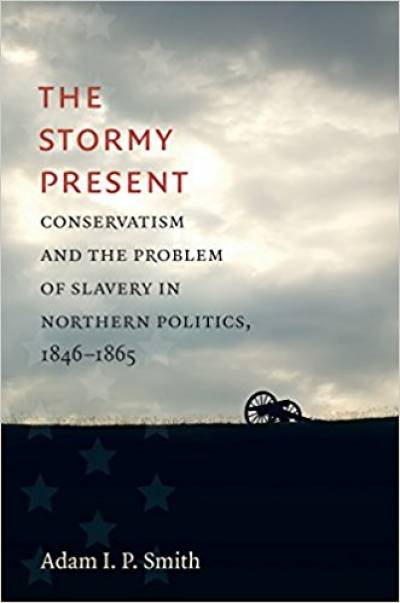 | Adam Smith, The Stormy Present: Conservatism and the Problem of Slavery in Northern Politics, 1846-1865 (Durham, NC: University of North Carolina Press, 2017)This history of Northern communities in the Civil War era offers a new interpretation of the familiar story of the path to war and ultimate victory. Smith looks beyond the political divisions between abolitionist Republicans and Copperhead Democrats to consider the everyday conservatism that characterized the majority of Northern voters. A sense of ongoing crisis in these Northern states created anxiety and instability, which manifested in a range of social and political tensions in individual communities. In the face of such realities, Smith argues that a conservative impulse was more than just a historical or nostalgic tendency; it was fundamental to charting a path to the future. At stake for Northerners was their conception of the Union as the vanguard in a global struggle between democracy and despotism, and their ability to navigate their freedoms through the stormy waters of modernity. As a result, the language of conservatism was peculiarly, and revealingly, prominent in Northern politics during these years. The story this book tells is of conservative people coming, in the end, to accept radical change. |
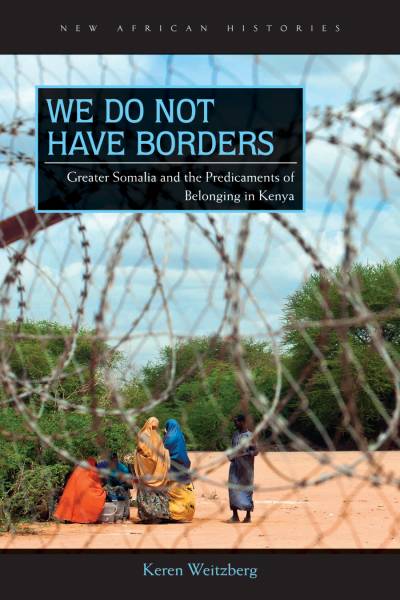 | Keren Weitzberg, We Do Not Have Borders: Greater Somalia and the Predicaments of Belonging in Kenya (Columbus: Ohio UP, 2017)Keren Weitzberg's monograph, We Do Not Have Borders: Greater Somalia and the Predicaments of Belonging in Kenya (Ohio UP, 2017), explores the position of the Somali population living in Kenya. Despite their long history in the country, Somalis are often ostracised by Kenyan officials and citizens and in recent years, allegations of civil and human rights abuses against them have increased. We Do Not Have Borders examines the factors that led to this state of affairs, challenging notions (such as 'tribe', 'race', and 'nation') that have traditionally shaped African historiography and sitting at the intersection of history, political science, and anthropology. |
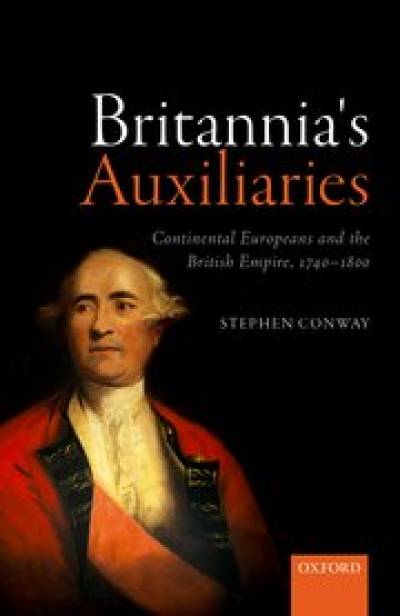 | Stephen Conway, Britannia's Auxiliaries: Continental Europeans and the British Empire, 1740-1800 (Oxford: OUP, 2017)Britannia's Auxiliaries provides the first wide-ranging attempt to consider the continental European contribution to the eighteenth-century British Empire. The book explores the means by which continental Europeans came to play a part in British imperial activity at a time when, at least in theory, overseas empires were meant to be exclusionary structures, intended to serve national purposes. It looks at the ambitions of the continental Europeans themselves, and at the encouragement given to their participation by both private interests in the British Empire and by the British state. Concluding that the empire seems to have changed the Europeans who entered it more than they changed the empire, it qualifies recent scholarly emphasis on the transnational forces that undermined the efforts of imperial authorities to maintain exclusionary empires and suggests that those foreign Europeans who involved themselves in or with the British Empire, whatever their own perspective, acted as Britannia's auxiliaries. |
Patrick Glen, '"Exploiting the Daydreams of Teenagers": Press reports and memories of cinema-going by young people in 1960s Britain', Media History, published online August 2017During the 1960s, young people were subject to intense scrutiny. Their lives differed from previous generations and as a consequence, they were portrayed as being at the forefront of social change and representative of Britain's national health. By comparing oral history interviews of those who were young and visited the cinema with media reports, this article evaluates the conversation around 'teenagers.' Newspapers' reports of youth arguably reflected their selection principles and journalistic practices. Oral history narratives, however, complicate press discourse by bringing to the fore a diversity of experiences and understandings: some felt the 'cultural revolution', while others felt bored. This demonstrates how studies of reception materials are incomplete and could benefit from being combined with ethnohistorical approaches. | |
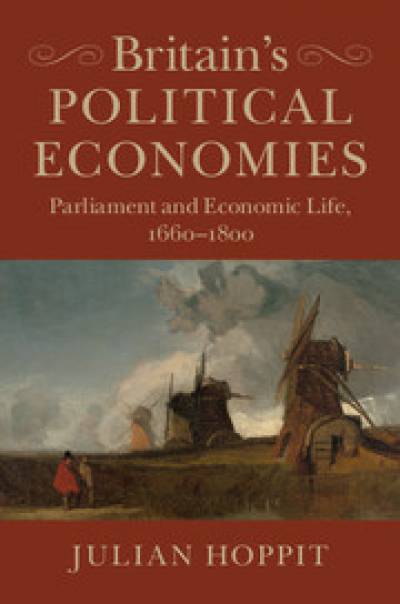 | Julian Hoppit, Britain's Political Economies: Parliament and Economic Life, 1660 - 1800 (Cambridge: Cambridge UP, 2017).The Glorious Revolution of 1688-9 transformed the role of parliament in Britain and its empire. Large numbers of statutes resulted, with most concerning economic activity. Julian Hoppit here provides the first comprehensive account of these acts, revealing how government affected economic life in this critical period prior to the Industrial Revolution, and how economic interests across Britain used legislative authority for their own benefit. |
Rebecca Jennings, 'Lesbian Motherhood and the Artificial Insemination by Donor Scandal of 1978', 20th Century British History hwx013, published online April 2017In January 1978, the London Evening News informed its readers of its shocking discovery that British lesbians were conceiving babies by artificial insemination by donor. This article explores the scandal that this news occasioned, analysing the stories of some of the women concerned to consider shifting ideas and practices of lesbian motherhood at this period. | |
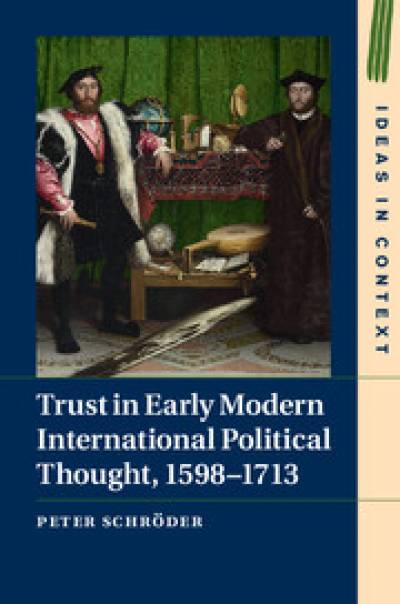 | Peter Schröder, Trust in Early Modern International Political Thought, 1598-1713 (Cambridge: Cambridge UP, 2017)Can there ever be trust between states? This study explores the concept of trust across different and sometimes antagonistic genres of international political thought during the seventeenth century. The natural law and reason of state traditions worked on different assumptions, but they mutually influenced each other. How have these traditions influenced the different concepts and discussions of trust-building? Bringing together international political thought and international law, Schröder analyses to what extent trust can be seen as one of the foundational concepts in the theorising of interstate relations in this decisive period. |
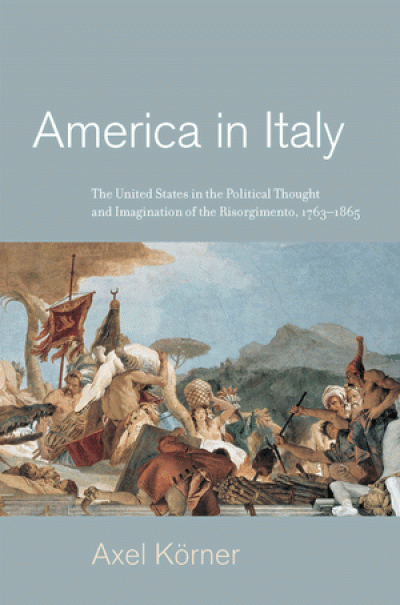 | Axel Körner, America in Italy: The United States in the Political Thought and Imagination of the Risorgimento, 1763-1865 (Princeton: Princeton UP, 2017)America in Italy examines the influence of the American political experience on the imagination of Italian political thinkers between the late eighteenth century and the unification of Italy in the 1860s. Showing how Italian political thought was shaped by American political debate, Axel Körner shows that European interest in developments across the Atlantic was more than just blind admiration. America became a sounding board for the critical assessment of societal changes at home. |
 Close
Close

